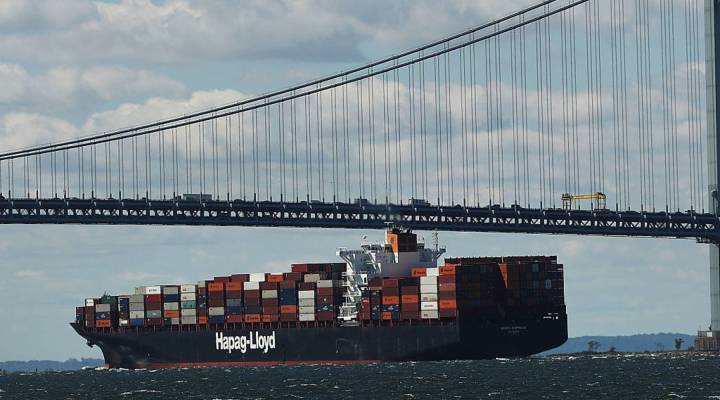
Biden looks to curb the big business powers behind shipping and rail
Biden looks to curb the big business powers behind shipping and rail

President Joe Biden will issue an executive order on Friday asking government regulators to disrupt a pattern of consolidation — and what it calls aggressive pricing — in the ocean shipping and freight rail industries.
The administration says a handful of companies are making it increasingly expensive for American manufacturers to ship goods.
What’s driving consolidation to begin with, and how much leverage does the government have? Mark Szakonyi of the IHS Markit Journal of Commerce said this isn’t a new problem. “Things really got bad during the financial crisis,” he said — the financial crisis that happened over a decade ago.
Maritime companies had built all these big ships, Szakonyi said, and suddenly demand tanked. Some firms lost their investment and merged. “Within roughly about five years … we went from 20 container lines to about 10,” he said.
To increase efficiency, those remaining, largely foreign container lines, started teaming up with each other to share space on their ships. Sort of like airlines: if they don’t have a seat for you, they might put you on another carrier they have a deal with.
Now, 80% of maritime shipping is part of one of these alliances. Tom Derry, CEO of the Institute for Supply Management, said the American companies paying those alliances high prices don’t like that.
“There probably are some companies who were complaining to the administration about the cost of transportation. But you know, what? It’s, you know, it’s the risk of being in the business you’re in,” Derry said.
Derry said the pandemic is really the issue here, “so no one suggested that the alliances had too much power in 2019.”
Demand is so high, and the supply chain is so stretched at every stage, Derry said, it isn’t just the shipper’s fault that costs are so high. “I think it’s a little misguided, I mean, this will be a self-correcting problem,” he said.
Once demand cools off and labor comes back, he thinks pricing will return to normal.
In the meantime, enforcing rates could be challenging, since the Biden Administration doesn’t appear to be extending the regulators’ powers.
“So I don’t know what this executive order does other than to say ‘Go do your job,’ which they will do, which they do already,” said Joan Mileski, Texas A&M maritime business professor.
Mileski added that the job of managing foreign companies that the U.S. depends on is already a reach. Perhaps, she said, the administration will have an easier time dealing with the American rail companies.
There’s a lot happening in the world. Through it all, Marketplace is here for you.
You rely on Marketplace to break down the world’s events and tell you how it affects you in a fact-based, approachable way. We rely on your financial support to keep making that possible.
Your donation today powers the independent journalism that you rely on. For just $5/month, you can help sustain Marketplace so we can keep reporting on the things that matter to you.

















